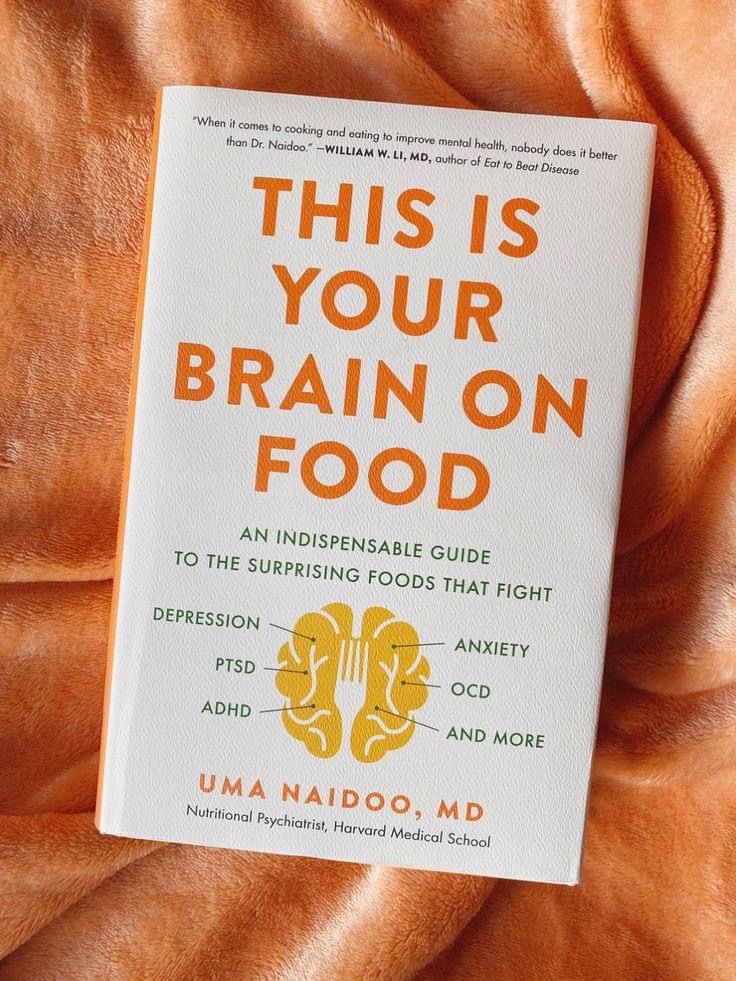This Is Your Brain on Food: How Diet Affects Mental Health
Summary
The food we eat doesn’t just impact our physical health—it also has a profound effect on our brain function, mood, and mental health. Scientific research shows that certain foods can boost memory, focus, and emotional well-being, while others can contribute to stress, anxiety, and depression.
This article explores the fascinating connection between diet and brain health, discussing how nutrients influence our cognitive abilities and mental state. By making informed food choices, we can optimize brain function, improve emotional resilience, and protect against neurological disorders.
Introduction
Most of us think of food in terms of calories, weight loss, or fitness, but few consider its impact on our minds. However, the brain—the body’s control center—requires specific nutrients to function properly. Just like a car needs the right fuel to run smoothly, our brains need the right foods to perform at their best.
But what happens when we eat processed, high-sugar, or unhealthy foods? Studies suggest that poor dietary choices can increase the risk of depression, anxiety, and cognitive decline. On the other hand, a nutrient-rich diet can enhance mental clarity, mood, and long-term brain health.
Let’s explore how food affects the brain and discover the best (and worst) dietary choices for optimal mental performance.
1. The Gut-Brain Connection: How Food Influences Mood
The gut and brain are deeply connected through a network called the gut-brain axis. This means that what we eat affects our mood, emotions, and cognitive function.
How the Gut Impacts the Brain:
🦠 Microbiome balance – The gut houses trillions of bacteria that produce neurotransmitters like serotonin and dopamine, which influence mood.
⚡ Inflammation levels – Processed foods cause inflammation, which can impair brain function.
🧠 Nutrient absorption – A healthy gut absorbs brain-boosting vitamins and minerals effectively.
Example:
About 90% of serotonin (the “happiness chemical”) is produced in the gut. If your gut health is poor due to processed foods, sugar, and artificial additives, your serotonin levels may drop, leading to mood swings, anxiety, and depression.
2. The Best Foods for Brain Health
To keep your brain sharp, focused, and emotionally balanced, include these superfoods in your diet:
A. Omega-3 Fatty Acids (Brain’s Best Friend)
🔹 Found in: Fatty fish (salmon, sardines), flaxseeds, walnuts
🔹 Benefits: Improves memory, reduces depression, protects against dementia
B. Antioxidant-Rich Foods (Fight Brain Aging)
🔹 Found in: Berries (blueberries, strawberries), dark chocolate, leafy greens
🔹 Benefits: Protects brain cells from damage, improves cognitive function
C. Whole Grains (Steady Energy for the Brain)
🔹 Found in: Brown rice, quinoa, oats, whole wheat
🔹 Benefits: Provides slow-releasing energy to support focus and concentration
D. Fermented Foods (Boosts Mood and Gut Health)
🔹 Found in: Yogurt, kimchi, sauerkraut, kefir
🔹 Benefits: Supports gut bacteria, enhances serotonin production
E. Nuts & Seeds (Nutrient Powerhouses)
🔹 Found in: Almonds, walnuts, pumpkin seeds, sunflower seeds
🔹 Benefits: Provides vitamin E, which slows cognitive decline
Example:
Eating a diet rich in fatty fish, leafy greens, and berries can reduce the risk of Alzheimer’s disease and improve overall brain function.
3. The Worst Foods for Brain Health
Just as some foods boost brainpower, others can harm cognitive function and mental health.
A. Processed Sugars (Destroys Focus and Mood)
🚫 Found in: Soda, candy, pastries, white bread
🚫 Effect: Causes blood sugar crashes, increases anxiety and depression
B. Trans Fats (Increases Brain Inflammation)
🚫 Found in: Fast food, margarine, fried foods, processed snacks
🚫 Effect: Linked to memory decline and cognitive impairment
C. Artificial Sweeteners (Alters Brain Chemistry)
🚫 Found in: Diet sodas, sugar-free gum, processed low-calorie foods
🚫 Effect: Can negatively affect mood and neurotransmitter function
D. Excess Alcohol (Shrinks the Brain Over Time)
🚫 Found in: Beer, wine, liquor (in large amounts)
🚫 Effect: Damages brain cells and weakens memory over time
Example:
A diet high in processed foods and sugar has been linked to an increased risk of depression, brain fog, and Alzheimer’s disease.
4. How to Eat for Better Mental Performance
Now that we know what foods help (and harm) the brain, here’s how to optimize your diet for better focus, memory, and mood.
A. Eat a Balanced Diet with Brain-Boosting Foods
✅ Include omega-3s, antioxidants, and fiber in daily meals.
✅ Swap processed carbs for whole grains to maintain stable energy.
✅ Eat plenty of fermented foods to support gut health.
B. Hydrate Your Brain
💧 Dehydration reduces focus and causes headaches. Aim for 8 glasses of water per day.
💧 Replace soda with herbal tea, infused water, or coconut water.
C. Reduce Brain-Damaging Foods
❌ Cut down on processed sugar, trans fats, and artificial additives.
❌ Limit alcohol and excessive caffeine to protect brain function.
D. Try Intermittent Fasting for Mental Clarity
⏳ Giving your body a break from constant eating can boost brain function.
⏳ Fasting periods (such as 16 hours fasting, 8 hours eating) can enhance mental clarity and energy.
5. Can Food Help Prevent Mental Illness?
Many studies suggest that a healthy diet can lower the risk of depression, anxiety, and neurodegenerative diseases.
Scientific Findings:
📌 The Mediterranean Diet (rich in fish, olive oil, and vegetables) is linked to lower depression rates.
📌 A high-sugar diet has been associated with an increased risk of Alzheimer’s disease (sometimes called “Type 3 Diabetes”).
📌 Eating whole, unprocessed foods improves gut bacteria, which directly affects mental health.
Example:
People who follow the Mediterranean diet have a 30% lower risk of developing depression compared to those who eat processed foods.
Final Thoughts
Your brain is only as healthy as the food you feed it. By choosing the right nutrients, you can enhance memory, improve focus, boost mood, and protect against mental decline.
If you want better mental health and sharper cognitive function, start by making small changes to your diet. Your brain—and your future self—will thank you. 💡🥦
